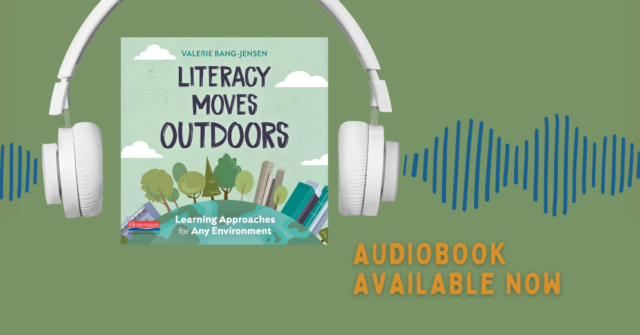
In Teaching Literature In The Context Of Literacy Instruction, coauthors Jocelyn Chadwick and John Grassie explore how the familiar literature we love can be taught in a way that not only engages students but does so within the context of literacy instruction, reflecting the needs of today’s classrooms. They address complex questions secondary English teachers wrangle with daily: Where does literature live within the Common Core’s mandates? How can we embrace informational texts in our literature classrooms? And most importantly, how can we help students recognize how canonical works are relevant to them?
In today's blog, the authors discuss how literature should have real purpose in the lives of students.
by Jocelyn Chadwick and John Grassie
Too many students (even one is too many) do not readily connect what they read in our classes with how they communicate, think, write, read, listen, view things outside class. It’s as if they see school-assigned reading as something separate from the rest of their lives, something kept in a silo apart from their real world. Without intrinsic motivation to read literature, students are far less likely to do so. To address the issue of students’ not reading the literature we assign, our profession has historically turned to punitive measures. I recently asked a colleague how classes were going. She said students were reading myths. I was overjoyed—I love mythology! But she continued: “And to make sure they are reading, they must take a three-question test; if they miss two questions, they must reread the story and retake the test. I told them it’s best to read the story the first time.” I made no response, but I felt for the students. If we rely on force to keep students reading, how can we hope that the literature they are compelled to read will ever be anything other than a burden, something for them to wall out of their personal lives, endure only until they have completed our classes?
Most students are not averse to reading, but they want what they read to be relevant. I call this the “so what?” factor: providing a clear reason and purpose. If we are only teaching to tests and assessments, we don’t need rich literature. But if we want the literature we love to be both pleasurable and instructive, we must create clear crosswalks and road maps for our students. We must enable them to identify with each text. Blending canonical and contemporary texts helps our students make connections. By guiding them through discussion and collaboration, we enable and encourage their own discovery and exploration. By breaking the texts apart and experiencing the similarities and differences, they hone the literacy skills they need in their lives outside our classrooms: comprehending, decoding, inferring, surmising, reading, writing, speaking, listening, thinking critically, and creating.
The payoff of this approach is our students’ clear understanding and belief that what we so love and want to teach them, our literature, lives beyond the walls of the English classroom. Literature does have a real purpose in their everyday lives. Literature can inform college, career, and daily tasks. Our students will be able to connect the dots themselves, not relegate literature to its own silo.
Click here to learn more about Teaching Literature In The Context of Literacy Instruction.
♦ ♦ ♦ ♦


Jocelyn A. Chadwick has been an English teacher for over thirty years—beginning at Irving High School in Texas and later moving on to the Harvard Graduate School of Education where she was a professor for nine years and still guest lectures. Dr. Chadwick also serves as a consultant for school districts around the country and assists English departments with curricula to reflect diversity and cross-curricular content. For the past two years, she has served as a consultant for NBC News Education's Common Core Project for Parents, ParentToolkit. In June 2015, Chadwick was elected Vice President for the National Council of Teachers of English.
John Grassie is a veteran broadcast journalist, with more than 25 years’ experience producing news coverage, program series, and documentaries for Public Television, NBC News, and Discovery. During his broadcast career, Grassie’s work received numerous awards for excellence in journalism.


